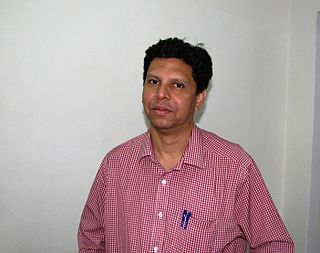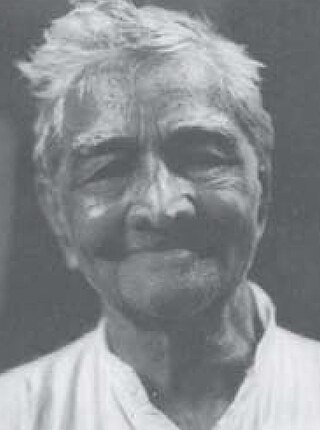
Jyotirao Govindrao Phule was an Indian social activist, businessman, anti-caste social reformer and writer from Maharashtra. His work extended to many fields, including eradication of untouchability and the caste system and for his efforts in educating women and oppressed caste people. He and his wife, Savitribai Phule, were pioneers of women's education in India. Phule started his first school for girls in 1848 in Pune at Tatyasaheb Bhide's residence or Bhidewada. He, along with his followers, formed the Satyashodhak Samaj to attain equal rights for people from lower castes. People from all religions and castes could become a part of this association which worked for the upliftment of the oppressed classes. Phule is regarded as an important figure in the social reform movement in Maharashtra.The honorific Mahātmā, was first applied to him in 1888 at a special program honoring him in Mumbai..

SNDT Women's University, also called by its full name Shreemati Nathibai Damodar Thackersey Women's University, is a women's university in the city of Mumbai, India. The university headquarters are at Churchgate in South Mumbai, while the main campus is at Churchgate there are two other campuses one in Santacruz–Juhu area of Mumbai and another at Pune. The university has affiliated colleges in Maharashtra, Assam, Uttar Pradesh, Bihar, Madhya Pradesh, Surat and Goa, as well. Dhondo Keshav Karve played a key role in its establishment. He was inspired by novel on Japan Women's University in 1915.

Irawati Karve was a pioneering Indian sociologist, anthropologist, educationist and writer from Maharashtra, India. She was one of the students of G.S. Ghurye, founder of Indian Sociology & Sociology in India. She has been claimed to be the first female Indian Sociologist.

Dhondo Keshav Karve, popularly known as Maharshi Karve, was a social reformer in India in the field of women's welfare. He advocated widow remarriage and he himself married a widow. Karve was a pioneer in promoting widows' education. He founded the first women's university in India, the SNDT Women's University in 1916. The Government of India awarded him with the highest civilian award, the Bharat Ratna, in 1958, the year of his 100th birthday. He organized a conference against the practice of devdasi. He started 'Anath balikashram' an orphanage for girls. His intention was to give education to all women and make them stand on their own feet. Through his efforts, the first women university was set up in 20th century.

The Chitpavan Brahmin or Konkanastha Brahmin is a Hindu Maharashtrian Brahmin community inhabiting Konkan, the coastal region of the state of Maharashtra. Initially working as messengers and spies in the late seventeenth century, the community came into prominence during the 18th century when the heirs of Peshwa from the Bhat family of Balaji Vishwanath became the de facto rulers of the Maratha empire. Until the 18th century, the Chitpavans were held in low esteem by the Deshastha, the older established Brahmin community of Karnataka-Maharashtra region.

Maharshi Karve Stree Shikshan Samstha is an Indian education society engaged in women's education. It was set up by Dhondo Keshav Karve in 1896 as Hingane Stree Shikshan Samstha.
Kothrud is an upmarket residential neighborhood in the city of Pune.
The Dashabhuja Temple is a Hindu temple in Pune, in the Maharashtra state of India. This temple was once owned by Sardar Haripant Phadke, a Sardar of Peshwa and was later donated to the Peshwas as dowry. Dashabhuja Ganapati temple is visited by thousands of devotees every day and the number increases during Ganesh Chaturthi. The idol of Ganpati or Ganesh seen here has his elephant trunk resting on his right-hand side, which is supposed to be rarer and more sacred than other forms of the Ganesh idol.
Warje is a suburb of Pune, in the Indian state of Maharashtra.
Vaman Malhar Joshi was a Marathi writer from Bombay Presidency, British India.

The Deccan Education Society is an organisation that runs 43 education establishments in Maharashtra, India. Its main branch is situated in Pune.

Brihan Maharashtra College of Commerce, Pune is a college affiliated to Savitribai Phule Pune University in the city of Pune, Maharashtra. The college was established in 1943, in Pune by the Deccan Education Society.
Marathi Brahmins are communities native to the Indian state of Maharashtra. They are classified into mainly three sub-divisions based on their places of origin, "Desh", "Karad" and "Konkan". The Brahmin subcastes that come under Maharashtra Brahmins include Deshastha, Chitpavan (Konkanastha), Saraswat, Karhade, and Devrukhe.
MKSSS's Cummins College of Engineering for Women (CCOEW) is an Autonomous engineering college in Pune, Maharashtra, India established in 1991 and run by the Maharshi Karve Stree Shikshan Samstha.

Salil Desai is an Indian novelist who writes murder mysteries based in Pune, India. His debut novel, The Body in the Back Seat, which was published in May 2011, was acclaimed as "the best murder mystery by an Indian author so far" by The Tribune. An alumnus of FTII, and a former journalist, he has also produced films, held creative writing workshops and written a number of short stories.
Bavdhan is a suburb located along the Western Metropolitan Corridor of Pune, Maharashtra, India. Just off the Mumbai-Bangalore national highway, Bavdhan serves as the outlet for Mumbai-Pune expressway. Central Bavdhan, consisting of Chandani Chowk, is bordered by Pashan on the North, Bhugaon village on the West, NDA reserved forest area on the South and Kothrud on its Eastbound Exit.

Huzurpaga is the oldest Indian run girls' high school in India.
Mangesh Tendulkar was an Indian artist as cartoonist and humourist. He has also written in many magazines on cartoons.

Dinkar Gangadhar Kelkar was an Indian writer, editor, art collector and historian. He is best remembered for establishing the Raja Dinkar Kelkar Museum in Pune.













